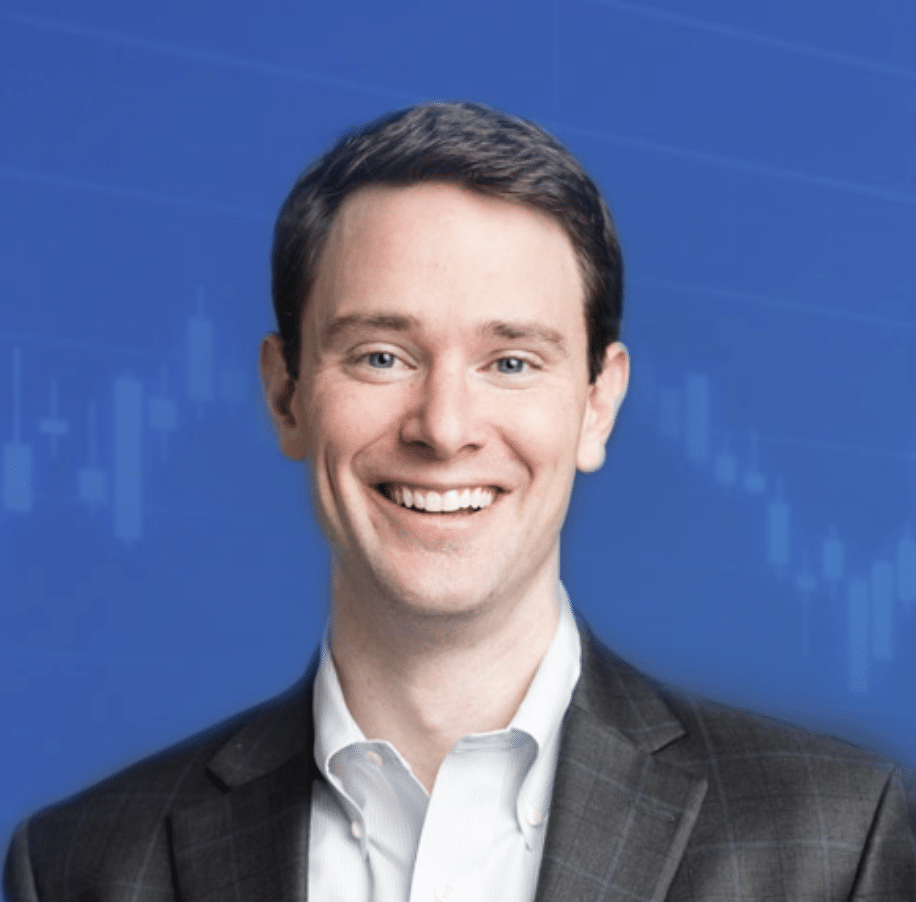Listen Now
Watch Now
Tadas Viskanta is the Founder and Editor of Abnormal Returns which highlights the best financial and investment content every day.
There is far more information available than any one person can digest, and yet somehow Tadas does it.
Listen now and learn:
- How to be a better consumer of financial information
- Problems that consuming forecasting content can cause
- Why it’s important for advisors to create content
Show Notes
Tadas Viskanta is the Director of Investor Education at Ritholtz Wealth Management LLC. Since 2005, Tadas is also the Founder and Editor of Abnormal Returns which highlights the best of the investment blogosphere.
Tadas is also the co-author of over a dozen investment-related papers that have appeared in publications like the Financial Analysts Journal and Journal of Portfolio Management, a monograph Country Risk in Global Financial Management and the 2012 book Abnormal Returns: Winning Strategies from the Frontline of the Investment Blogosphere.
There is so much information out there – way more than any one person can digest – between traditional news articles, blog posts, podcasts, videos…but yet, somehow Tadas does it.
Abnormal Returns is so important in the curation of good content without having to visit every possible website.
How do you do it?
I’ve had a lot of practice.
How much of your day is committed to consuming content?
A lot of it.
Any advice for people on how to consume better? What sort of filters do you think people should use?
Narrow your focus and follow that focus consistently, then expand from there.
When reading, think to yourself: Where is this information coming from? Does someone have an agenda?
One thing you won’t find on Abnormal Returns is forecasts. And I love that. Can you share why the content you curate isn’t very forecast-based?
It’s two-fold. When I started the blog, everything else on the internet was forecast focused. That’s not interesting to me because if you tell someone to buy a stop, at the very least you could do is disclosure your position and also let people know when you sell or change your position – people don’t do that and it’s annoying.
Secondly, we are simply bad at forecasting. People can get lucky, but it’s well documented.
If you’re basing your investing strategy on forecasts, you’re going to hit a rough patch at some point. And when that happens, you’re going to change your strategy – jumping strategy to strategy is harmful, so he likes to de-emphasize forecast-based content.
Take inflation…you get crazy headlines but it doesn’t take into account the nuances and how we got here. Nobody can know how this will play out.
A good headline can drive clicks. What topics are people most interested in right now?
I don’t think a lot about what people are clicking on so that it doesn’t influence his process, but crypto is at the top of people’s minds right now and it’s hard to not be paying attention. Market-related topics always popular.
What are people overrating and underrating when it comes to both content creation and content consumption?
Topics go in waves. For a while it was active vs passive. Then it shifted to what factors should be used.
We understate the changes that have happened over the last couple of years. Increased retail participation, cryptocurrencies, NFTs, and the spread of sports gambling – almost everything is a trade these days.
A lot of it is really interesting and great, there are some aspects that are a little more troubling, but….When everything is a trade it distorts the way you look at the world a little bit, especially compared to a few years ago.
Obviously, the way people consume financial information has evolved, but also the type of people creating content has evolved. I had a conversation with Phil Huber on the Role of CIO and I think communication is now a key part of it. Do you agree that content creation by advisors and allocators is important?
Whether you like it or not, clients are consuming all sorts of stuff. YouTube, Instagram, TikTok, blogs, podcasts, traditional media. You can’t rebut all of the bad information. All you can do is focus on your own house. In that regard, one thing that makes RWM different, we’ve all been writing for a long time and we just try to put good stuff out there.
There’s something to be said for consistency. A lot of people start blogging, but they fall off for whatever reason.
Consistency is important in communicating with clients. When something happens, they know that you are looking at it or thinking about it.
The challenge of sticking to a writing routine is tough. For other advisors and investors, it’s a real challenge.
With investing, often the best action is no action. But communicating that you are thinking about current events and still think the plan is intact is an important piece of an advisor’s role.
That’s the value of having a microphone or a blog – if you can answer some of these questions before they pick up the phone to call the advisors, then the advisors can spend more time focusing on the things that do matter and that you can control.
If you could magically impart one piece of wisdom to all investors, what would it be?
All the great successes in this world come with a big dose of luck.
There shouldn’t be any shame in being lucky, it’s just the nature of life.
Recognizing that when looking at others or yourself is important.
For investments, some of the worse mistakes people make is piggybacking on someone else’s success. But if that person’s success was due to a lucky run,
Both highly endorsed Michael Mauboussin’s The Success Equation.
It changes the way you look of the world, you go from a deterministic view to a probabilistic view of the world.
Others who are must reads?
- Morgan Housel
- Jason Zweig
How do you invest your money?
Started a DIY investor and that was the audience the blog was initially for. RWM is the money manager now. Some venture capital investments.
Over 15 years, part of it is getting older, letting go of stuff…being able to take back the time that someone might be spending on their investments or worrying about them, giving it to a professional so that you can focus on other areas of your life. Gives people piece of mind and gives people time to focus on things that are probably more interesting.
The accountability is a huge value add.
Advisors have advisors. Doctors shouldn’t be diagnosing their own illnesses. Advisors should have advisors not just for accountability, but also to avoid blindspots.
What does being a long-term investor mean to you?
There is no one way to invest. We all have our preferences.
However you invest, as long as you have the comfort of knowing that there is a system in place, then you don’t have to worry about it.
Being a long term investor is less about specific time horizons and more about the mindset.
Connect with Tadas:
- Web: AbnormalReturns.com
- Twitter: @AbnormalReturns
Resources
- AbnormalReturns.com
- Tadas on Twitter: @AbnormalReturns
- Submit your question for the show through my “Ask Me Anything” form
Get Your Finance Questions Answered
Do you have a financial or investing question you want answered? Submit your question through the “Ask Me Anything” form at the bottom of my podcast page.
If you enjoy the show, you can subscribe wherever you listen to podcasts, and please leave me a review. I read every single one and appreciate you taking the time to let me know what you think.
Until next time, to long-term investing!
About the Podcast

Long term investing made simple. Most people enter the markets without understanding how to grow their wealth over the long term or clearly hit their financial goals. The Long Term Investor shows you how to proactively minimize taxes, hedge against rising inflation, and ride the waves of volatility with confidence.
Hosted by the advisor, Chief Investment Officer of Plancorp, and author of “Making Money Simple,” Peter Lazaroff shares practical advice on how to make smart investment decisions your future self with thank you for. A go-to source for top media outlets like CNBC, the Wall Street Journal, and CNN Money, Peter unpacks the clear, strategic, and calculated approach he uses to decisively manage over 5.5 billion in investments for clients at Plancorp.
Support the Show
Thank you for being a listener to The Long Term Investor Podcast. If you’d like to help spread the word and help other listeners find the show, please click here to leave a review.
Free Financial Assessment
Do you want to make smart decisions with your money? Discover your biggest opportunities in just a few questions with my Financial Wellness Assessment.


















